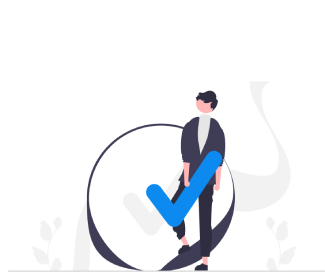A lot of people have a common question about the“definition of a whistleblower?”
A whistleblower exposes misconduct like fraud or danger within an organization. They reveal this internally, aiming to expose management's practices. Their actions often lead to organizational reforms and ethical improvements. It might also be external, in which case a whistleblower informs the government, the police, or the media about an organization's unlawful activities.
Whistleblowing is not usually motivated by significant criminal activity. An employee might report theft, misuse of sick days, or resource exploitation. Whistleblowing isn't always favored for exposing wrongdoing. Regulations encourage reporting unethical behavior for safety and welfare. Even the Whistleblower Protection Act holds good importance today.
Whistleblowing Types
Here are the types of whistleblowers:
An internal whistleblower reports issues within an organization. Companies in the EU with 49+ employees must set up channels. These channels enable reporting of misbehavior by employees and stakeholders. A worker's line manager is another option for reporting.
When someone comes forward in public, it's called external whistleblowing. This happens when internal channels fail or trust is lacking. People may choose this when there's no whistleblowing system. They might also do this if internal efforts fail. It can involve going to the police or media. Social media is another avenue for external whistleblowing.
What Kinds Of Reports From Whistleblowers Are Typical?
Although there are several possibilities, they frequently involve instances from the following categories:
- Corruption
- Crimes and legal infractions
- Violations of human rights
- Bribery Incompetence or poor management
- insider dealing
- Data misuse Supply chain infractions
These scenarios may entail a number of significant dangers that could have detrimental effects on workers, businesses, or even entire nations. Therefore, in order to stop people or businesses from participating in wrongdoing or illegally profiting themselves, unethical behavior and grievances must be made public. Otherwise, there would be no criminal penalties.
Labour Law and Whistleblowers: When Employees Turn into Whistleblowers
The importance of employer loyalty is one of the reasons why whistleblowers have faced difficulties. Whistleblowers were formerly only partially protected by laws, at least in Europe, against potential retaliation such abrupt terminations. Only a few specifically designated industries, such banks and financial institutions, were required by law to set up a compliance system in the majority of EU member states. The EU Whistleblowing Directive has now significantly changed the landscape by offering whistleblowers in all industries complete protection.
Why Is It Advantageous To Whistleblower?
The organization and the larger community both benefit greatly from whistleblowers. Organizations can prevent huge fines and reputational harm if internal conflicts are settled before going public in the media or on websites like Wikileaks. Companies that were subject to enforcement action under the US Foreign Corrupt Practices Act in 2022 were fined $924 million in total.
Whistleblowing systems enable the private reporting of anomalies. It also benefits the bottom line: past performance indicates that infractions cost businesses and organizations about 7% of their yearly revenue. Internal reporting can minimize financial harm by assisting in the discovery of a substantial majority of these cases.


 Back to Glossary
Back to Glossary